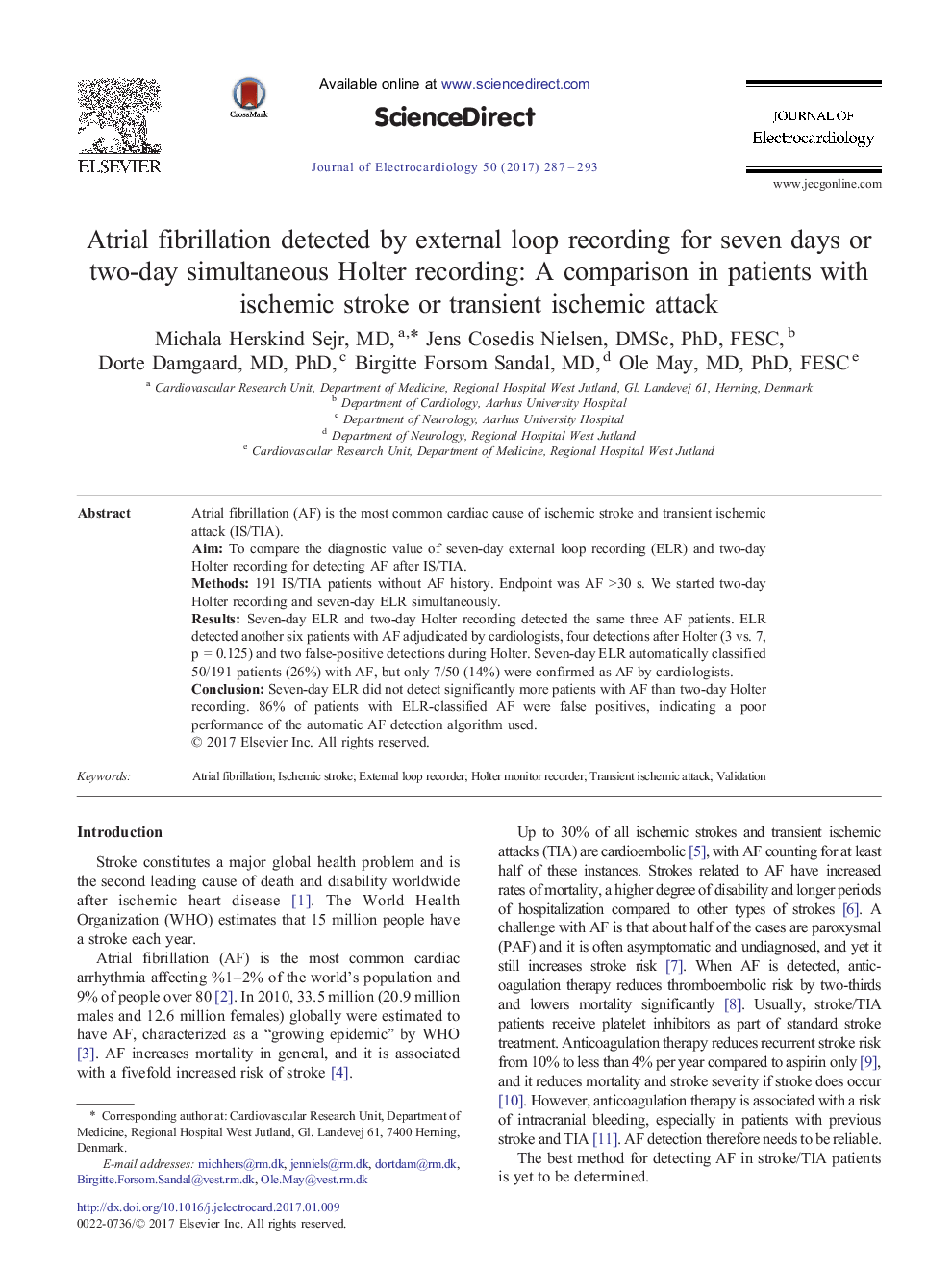| کد مقاله | کد نشریه | سال انتشار | مقاله انگلیسی | نسخه تمام متن |
|---|---|---|---|---|
| 5615608 | 1405975 | 2017 | 7 صفحه PDF | دانلود رایگان |
- This study highlights a clinically important problem, using ELRs to detect short episodes of AF.
- The primary strength of this study is simultaneous Holter recording and ELR monitoring.
- Investigators analyzing the ELR tracings were blinded to the Holter recording results and vice versa.
- 86% of patients with ELR-classified AF were false positives.
- Automatically ELR-detected AF episodes should be used very cautiously in clinical decision-making.
Atrial fibrillation (AF) is the most common cardiac cause of ischemic stroke and transient ischemic attack (IS/TIA).AimTo compare the diagnostic value of seven-day external loop recording (ELR) and two-day Holter recording for detecting AF after IS/TIA.Methods191 IS/TIA patients without AF history. Endpoint was AF >30 s. We started two-day Holter recording and seven-day ELR simultaneously.ResultsSeven-day ELR and two-day Holter recording detected the same three AF patients. ELR detected another six patients with AF adjudicated by cardiologists, four detections after Holter (3 vs. 7, p = 0.125) and two false-positive detections during Holter. Seven-day ELR automatically classified 50/191 patients (26%) with AF, but only 7/50 (14%) were confirmed as AF by cardiologists.ConclusionSeven-day ELR did not detect significantly more patients with AF than two-day Holter recording. 86% of patients with ELR-classified AF were false positives, indicating a poor performance of the automatic AF detection algorithm used.
Graphical Abstract261
Journal: Journal of Electrocardiology - Volume 50, Issue 3, MayâJune 2017, Pages 287-293
